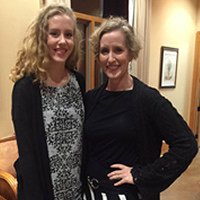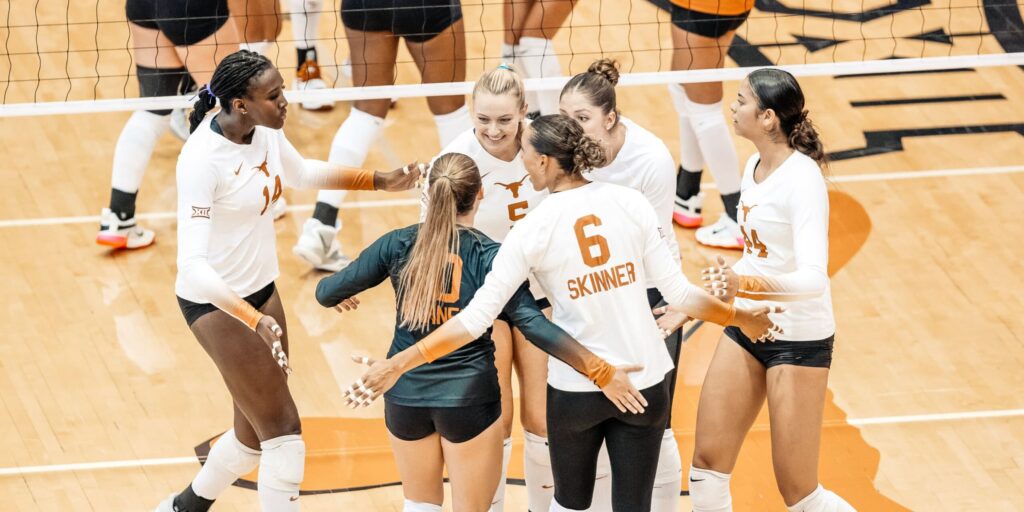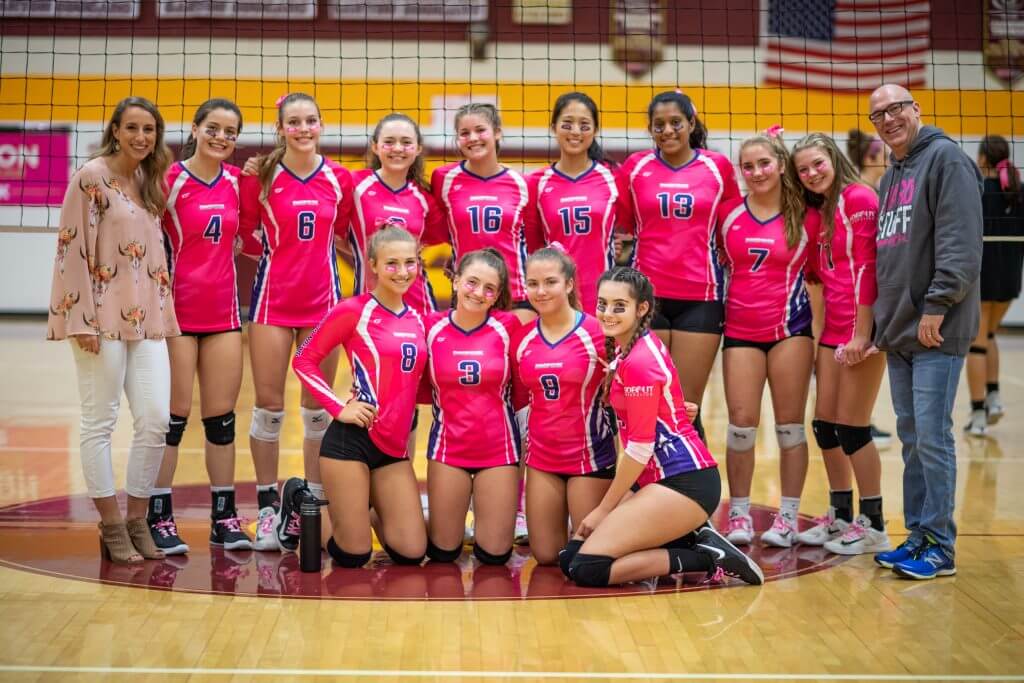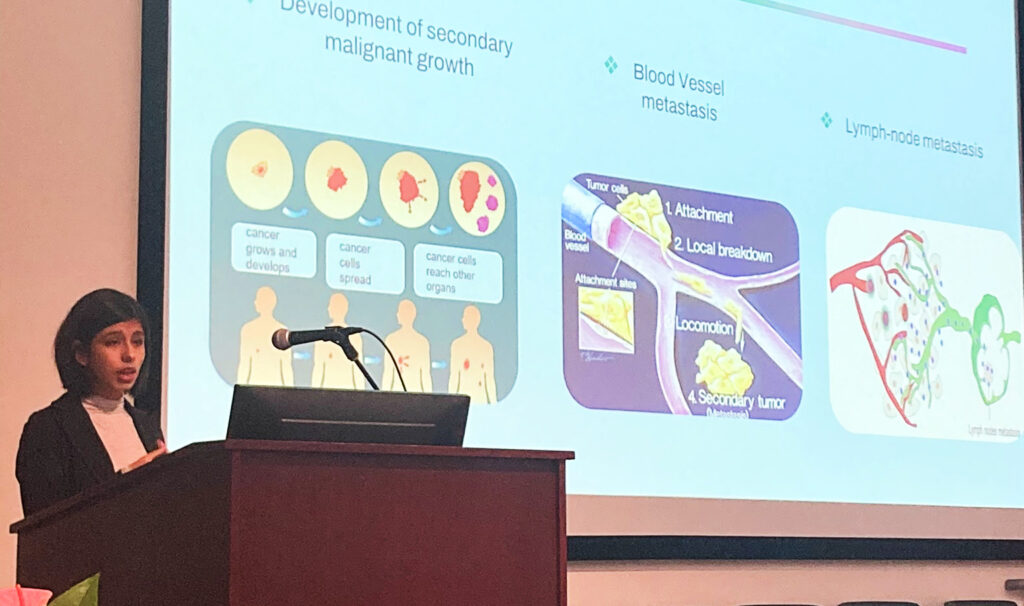
There seems to be little connection between volleyball and breast cancer, and yet they are inextricably linked in my life. It was my breast cancer diagnosis that led me to the magic of team sports and a new life. Without my daughter’s love for volleyball, there would be no evidence of the confidence building power of team sports. Without cancer, there would be no sale of  all our worldly assets, grand adventure of starting a foundation for the empowerment of girls of all ages, or construction of our $2 million 850 Elite Volleyball Academy and Girl Power Station Women’s Wellness Center. You see, breast cancer and volleyball have completely changed my life, and it all started with the lionesses. My trip to Africa, watching the lionesses work together as a pride, showed me how important the Power of the Pride is to any endeavor that involves more than one person. The Power of the Pride is rooted in our need for a pride, or team, of supporters to live a meaningful life. We are more than the sum of our parts, whether it’s surviving in the African bush, winning championships or thriving through cancer.
all our worldly assets, grand adventure of starting a foundation for the empowerment of girls of all ages, or construction of our $2 million 850 Elite Volleyball Academy and Girl Power Station Women’s Wellness Center. You see, breast cancer and volleyball have completely changed my life, and it all started with the lionesses. My trip to Africa, watching the lionesses work together as a pride, showed me how important the Power of the Pride is to any endeavor that involves more than one person. The Power of the Pride is rooted in our need for a pride, or team, of supporters to live a meaningful life. We are more than the sum of our parts, whether it’s surviving in the African bush, winning championships or thriving through cancer.
Beating cancer and winning championships both need a team approach to be successful. We cannot create great things alone; we all need our Pride. We need our Inner Pride, which we build through self-care, and our Outer Pride in the form of supportive friends and family. However, that’s not the only link between breast cancer recovery and volleyball: both affect seemingly disparate people in a common way. Club volleyball joins different schools, geographic locations, and skill levels into one organization. Cancer has no boundaries, either. It doesn’t matter if you’re rich, poor, male, female, a fitness nut or a couch potato. Cancer strikes indiscriminately, bringing vastly different people into the same club. Cancer forces you to ask for help. And that’s why it was the best thing that ever happened to me.
Before cancer, I was a type A control freak who lived for organizing my CDs alphabetically, my clothes by color and season, and running my family like an army platoon. I was completely bewildered at my diagnosis. Hadn’t I done all the right things by my body? I ate organic food; I exercised regularly; and I drank enough water to float a boat. I had no family history of cancer, never smoked, and was ridiculously healthy. And yet I got cancer. When I received my diagnosis, I tried to organize cancer. I did all my Internet research and came up with a plan that would allow me to put this momentary distraction behind me. I thought this would just be one more challenge to master. But I couldn’t do it alone. I couldn’t control it alone. I could not organize cancer. Instead, it re-organized me.

During my breast cancer treatment, I came to understand how my priorities were built upon a fiction. When you’re facing death, what really matters rises to the surface. To do lists, the latest gadget, and that last hour at work become pretty meaningless. I found that the most important things in my life were: 1. my family, 2. my sense of humor, and 3. my creativity. Ironically enough, these three things have come to be the most important ingredients for success on the volleyball court, as well.
In our volleyball club, we take a holistic approach. In all of our lessons, we emphasize, “It’s so much more than volleyball.” I use life coaching to teach life skills on the volleyball court that translate into our players’ home and school lives. When I teach girls how to calm their stress response on the court, they can use that same skill before a test. And they can teach their parents to use the same stress management tools that I used before my mastectomy operation. When our families pull together to learn new things, we all make our lives easier and more fun.

Speaking of fun, I tell all of my players, “There’s nothing so serious that you can’t laugh at it.” When I found out about my diagnosis and treatment plan, my first thought was, “We need to have a party!” We held a Bon Voyage party for my breast. We called the party, “Tah-Tah to the Tata”. Of course, we had boob shaped cupcakes and every other irreverent form of celebration possible. Laughing at such a serious matter gave me back control. It’s the same thing on the volleyball court. When my players make a mistake, we don’t beat ourselves up; instead, we find a way to laugh at it, thereby learning from it. If we are laughing as a team, we are connected. Together, we can be so much more successful than as morose little islands, afraid to talk or make eye contact.
The last part of my awakening was a realization that creativity is intrinsic in my success as a loving person. It’s also super important on the volleyball court. When my players make mistakes, I counsel them to plug into their curiosity about that mistake, not their shame about making it. We all make mistakes. If we don’t, then we aren’t pushing out of our comfort zone. Instead of “How could I’ve been so stupid?” I tell my players to ask themselves “I wonder what I could do differently to get a different result?” Creativity also extends our childlike wonder for life. When we make something with our hands, or discover new forms of creating, such as writing, knitting, poetry, music, or dancing, then we become the fullest expression of a human being.
My Takeaway
The biggest lesson I learned from cancer is to let go of the result. Winning at cancer and volleyball are not the goal; they are by-products of throwing yourself into the process. If you focus solely on the cure or the score, you miss all the lessons in the journey. You miss the way cancer refines your vision for what’s really important. You miss the camaraderie and emotional support on the court. You miss the feeling of being part of something bigger. You miss the good stuff. And isn’t the good stuff sort of the whole point?
About The Side-Out Foundation
The Side-Out Foundation founder of Dig Pink®, teams with the volleyball community to inspire science and hope in the match against breast cancer. Side-Out is the only charity using the power and teamwork of the volleyball community to beat cancer and is directly responsible for extending the lives of stage 4 breast cancer patients For more information on news, blogs, and events relating to the organization, subscribe to Side-Out’s newsletter. For any additional information, please contact The Side-Out Foundation online.







